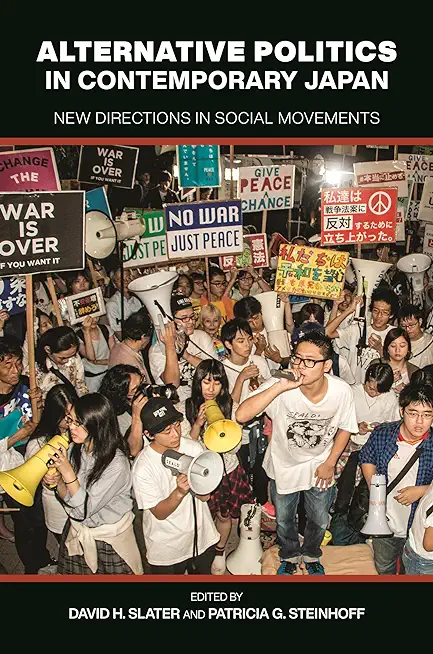
Slater, David H.
product information
description
y serve as a space to voice concerns in a supportive and collective context and thus are an important venue for individuals to learn how to speak up for themselves. With the rise of new generations and advancement of technology such as digital networks, contemporary Japanese social movements and activism have transformed significantly in recent years, now with more flexibility and less reliance on ideology and institutional foundations. The new patterns provide individuals different spaces and ways to get involved in "politics," which have shed the traditional settings and expectations. This transformation carries both advantages and risks. In Alternative Politics in Contemporary Japan, twelve original ethnographic studies illustrate how social movements are creating new alternatives for Japan in the current century. The term "alternative" has a double meaning. First, it refers to forms of political engagement that are outside the standard politics of political parties and institutional forums. Second, it engages with contemporary movements seeking an alternative politics that is culturally specific and historically embedded, an alternative to past periods of activism in Japan in the 1960s and 1970s often characterized as tainted, and causing the decline of social movement activity for nearly two decades. The introduction written by Slater and Steinhoff places the volume in historical, social, and methodological context and analyzes the main characteristics of the new social movements. Each chapter provides a rich description of a particular movement active between 1990 and 2020, showing what the participants wanted to achieve, how they tried to distance themselves from earlier movements, and how they used new social media and other innovations to do so. The accounts preserve the immediacy of the period when the fieldwork was conducted, but each end with a postscript bringing the movement up to date. Engagingly written by an international community of Japan specialists committed to doing extended fieldwork with small social movement groups, Alternative Politics will appeal to social scientists interested in activism and Japan specialists in sociology, anthropology, and other disciplines, as well as undergraduates in a wide range of courses.
member goods
No member items were found under this heading.
Return Policy
All sales are final
Shipping
No special shipping considerations available.
Shipping fees determined at checkout.







